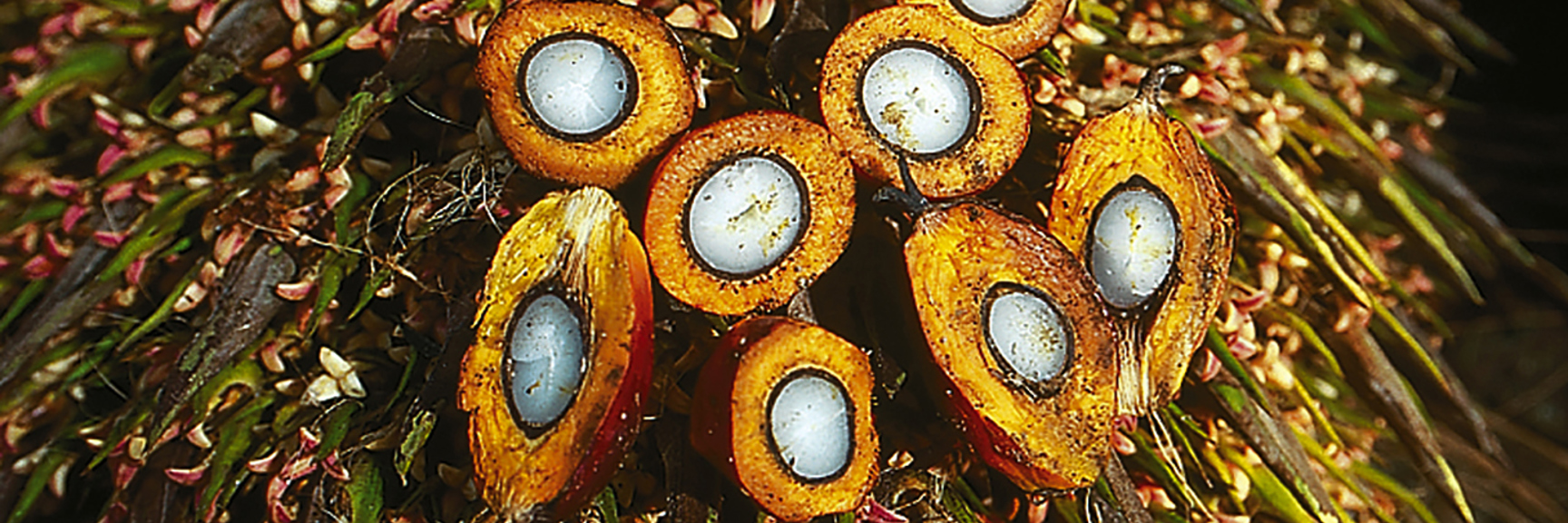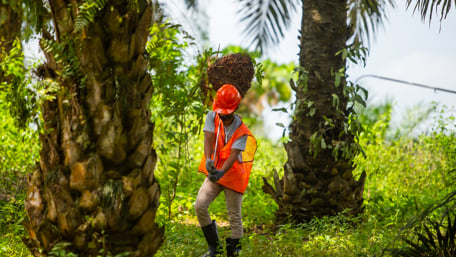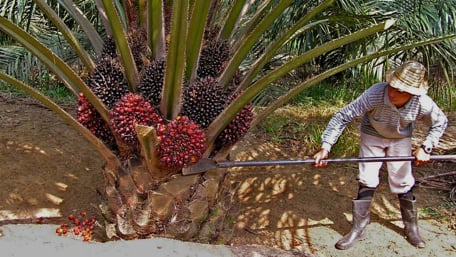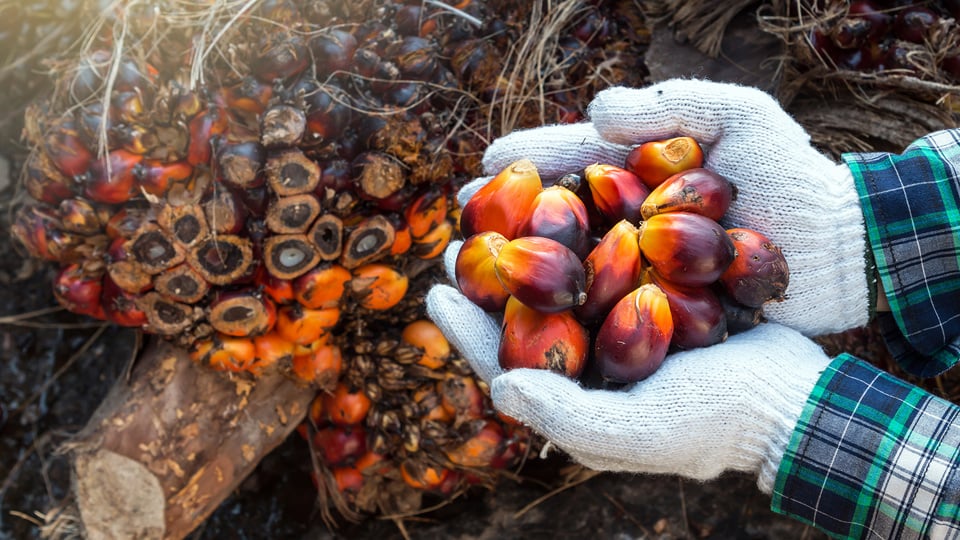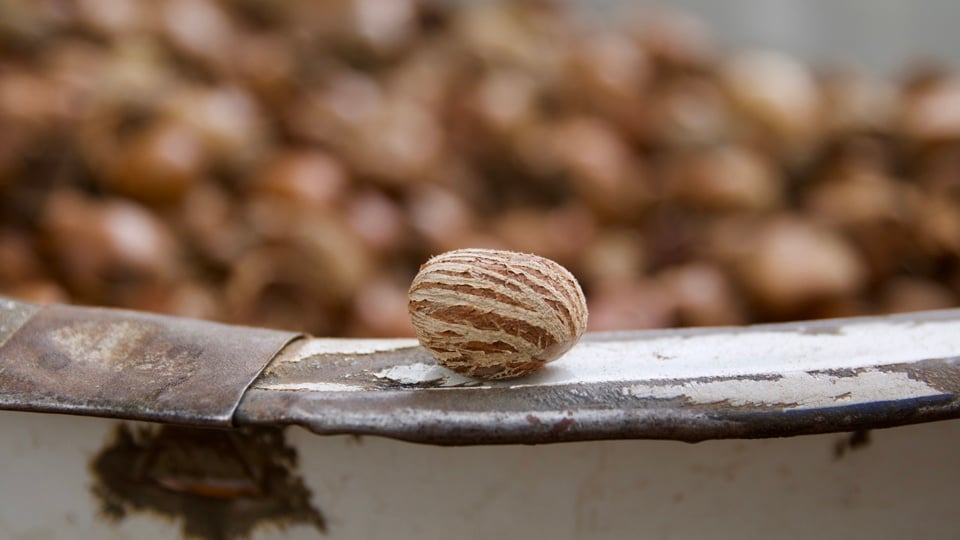AAK is committed to 100 percent sustainable palm oil by 2025. This means that the palm oil that we are sourcing needs to be 100 percent verified deforestation free, 100 percent traceable to plantations and that human rights and labor rights are respected.
AAK's value chain
AAK’s position in the supply chain is mostly indirect. More than 70 percent of our sourcing volumes is from tier 1 refiners that we further process in one of our refineries across the world. Around 30 percent of our global palm oil volumes are sourced directly from mills mainly in Mexico and Colombia where we do have our own refineries. For details about AAK's value chain, please click here.
Our milestones and roadmap to 2025
Our milestones and roadmap to 2025 shows our progress in the journey towards sustainable palm, as well as our ambitions still ahead.
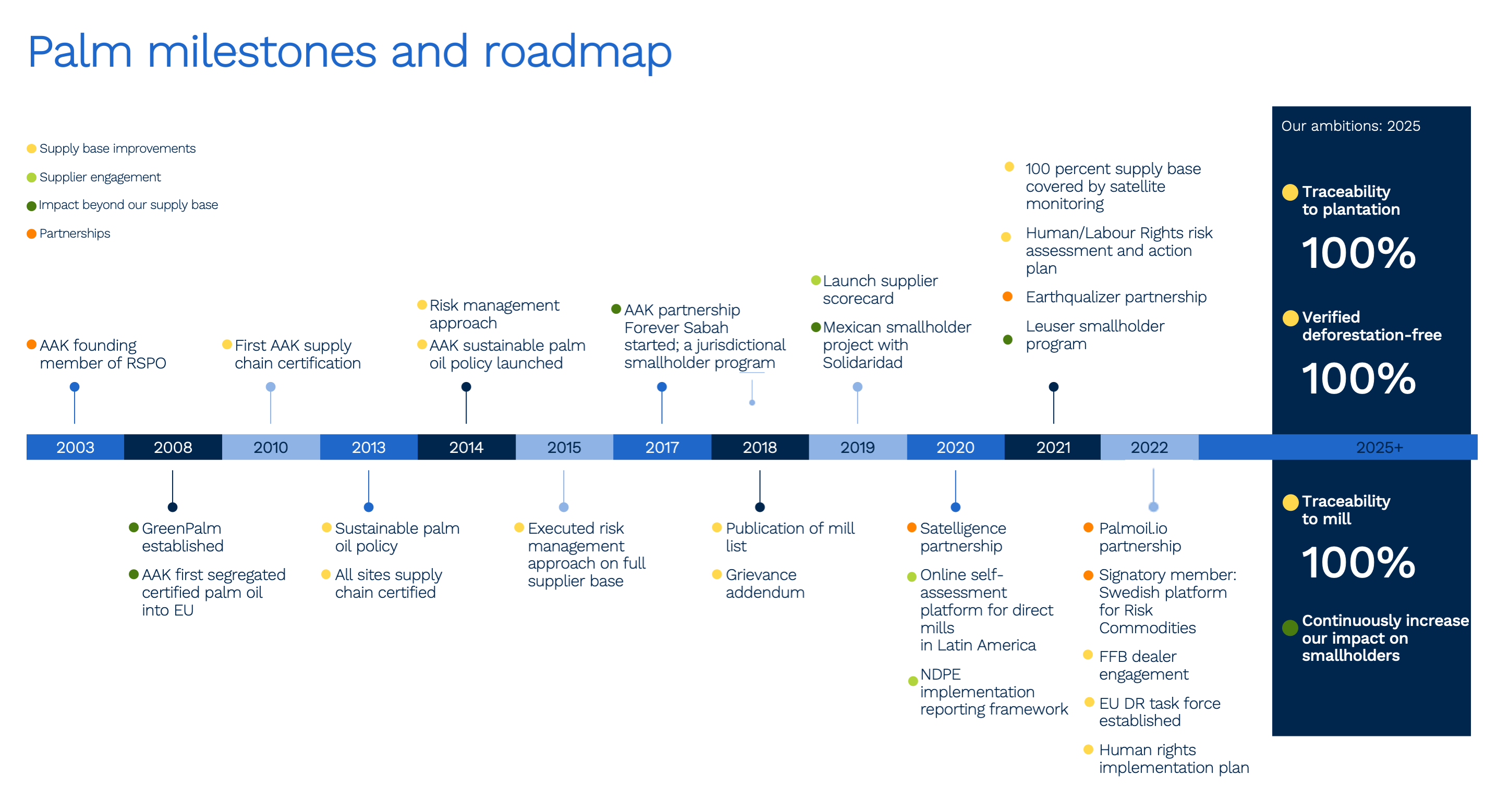
Sustainability KPIs for palm
Deeply understanding our supply base
Understanding our supply base is a critical step in furthering sustainability, providing the baseline by which we prioritize the action we take both within and beyond our supply chains. Thus, we work closely with our suppliers and stakeholders to obtain traceability data.
We are collecting all mill data and are working to increase traceability to plantation (TTP). As of 2024, TTP for palm has already reached 97%, and traceability to mill remains 100%. This requires sector-wide efforts by companies and other stakeholders, which AAK acknowledges and commends. Palm oil supply chains involve millions of small producers, many of whom are not responsible for clearance.
Public mill list and grievance addendum
Our universe of mills list is updated twice a year. Since the first half of 2023 (FH 2023) AAK has been publishing mill list information per AAK refinery broken down into direct and indirect supply. Each refinery-specific TTM, TTP, VDF, and RSPO uptake score can be viewed in the specific mill list as well.
To access our most recent mill list, please click here: AAK Public Mill List.



In addition, we have published a grievance addendum that lists the companies that we have recorded a grievance against. This list will be updated on a regular basis. To access the grievance tracker, please click here: AAK Grievance Tracker.
Engaging with suppliers and farmers
Indirect vs. direct sourcing
Indirect sourcing means that we source from suppliers that buy their crude palm oil from mills in their supply base. When we source direct, it means that we directly source from mills.
Indirect sourcing from tier 1 suppliers
We monitor progress in accordance with the framework laid out in the No-deforestation, No-development on peat and No-exploitation implementation reporting framework (NDPE IRF). One important KPI for AAK, which we have developed together with Proforest is to understand the percentage of verified deforestation-free volumes. This approach combines our RSPO (Roundtable on Sustainable Palm Oil) certified and segregated volumes with data from suppliers that deliver the No-deforestation and No-peat requirements.
We expect our suppliers:
- To sign AAK supplier code of conduct and AAK sustainable palm policy or to have a verified and aligned policy in place
- To proactively monitor deforestation in their supply base
- To provide mill data and to drive progress in traceability to plantation
- To collect concession maps of their third-party supply base
- To manage grievances proactively
- To be or become member of the RSPO
We are also assessing our supplier progress using the score cards, that we have developed together with Proforest as part of our effort to strengthen our supplier engagement work. We monitor critical elements of AAK Group Policy and Code of Conduct for responsible sourcing of plant-based oils focusing on implementation plans and closing the gaps. Read more about the process and progress here.
Direct sourcing from mills
AAK launched a mill engagement platform in collaboration with Proforest in the first quarter of 2020. This platform requires mills to complete a self-assessment on their activities and progress in driving sustainability. The platform also provides training tools to support the mills with their implementation plans.
100 percent of our direct suppliers in Mexico and Colombia have completed a self-assessment. A new program was launched in Mexico in 2024 to support 260 smallholder producers with a digital self-assessment tool.
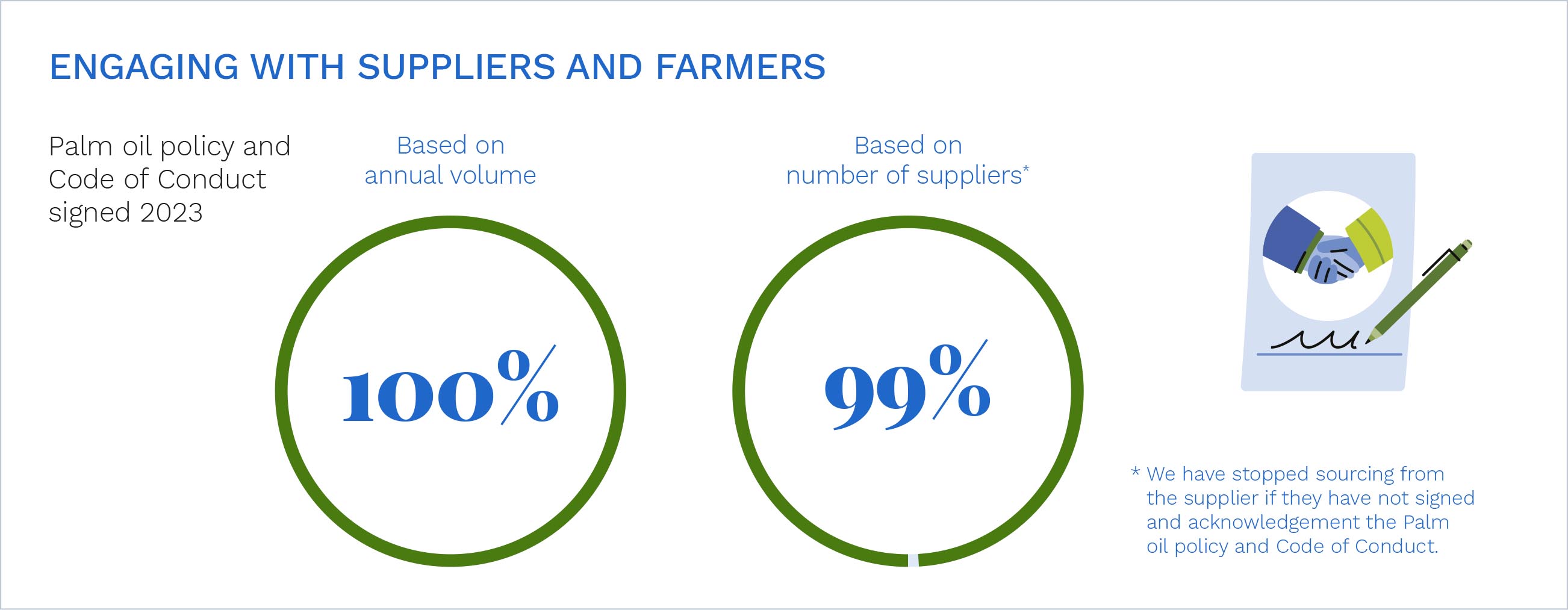
Driving impact beyond our supply base
Because of the complexity of the palm oil supply chain, involving millions of smallholder farmers, the environmental and social risks associated with it can only be solved by working together in cross-industry initiatives.
We support a unique project in Mexico together with Solidaridad, the objective of which is to develop the sustainability of three palm oil social enterprise cooperatives, with the ultimate ambition of achieving RSPO certification. A new, ongoing project with Solidaridad, the Roundtable on Sustainable Palm Oil (RSPO), and ANIAME was launched in 2024.
In 2021, we announced a partnership with Musim Mas and Nestlé to support smallholders in Aceh, Indonesia, with the objective of increased yields and earnings for the smallholders, reducing the incentive to encroach into protected areas as a way of increasing their income. This partnership was renewed in 2025.


